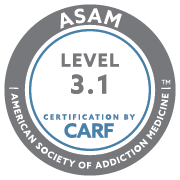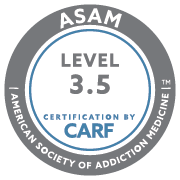
Unfortunately, the chances that someone you know and love may experience a drug overdose are growing as the pandemic has made an already serious crisis even worse. The past several months have been an incredibly uncertain and stressful time for many people, and we are seeing an increase in drug consumption, difficulty in accessing life-saving treatments for substance use disorders, and a tragic rise in overdose deaths — both in the United States as a whole, and right here in Yellowstone County.
Drug overdose deaths rose by close to 30% in the United States in 2020, the highest number ever recorded according to the US Centers for Disease Control and Prevention. More than 93,000 people died from drug overdoses in 2020, according to provisional data released by the CDC’s National Center for Health Statistics. That’s a 29.4% increase from the 72,151 deaths projected for 2019. Overdose deaths from cocaine, synthetic opioids (primarily fentanyl), natural and semi-synthetic opioids (such as prescription pain medication), and psychostimulants all increased in 2020.
“This is the highest number of overdose deaths ever recorded in a 12-month period, and the largest increase since at least 1999,” Dr. Nora Volkow, director of the National Institute on Drug Abuse (NIDA), part of the National Institutes of Health, said in a statement.
What does overdose look like?
People experiencing overdose will present with varying symptoms depending on the substance(s) they have overdosed on.
Opioid Overdose. Opioids attach to receptors in the central nervous system, reducing pain signals to the brain. Commonly used opioids include oxycodone, morphine, codeine, heroin, fentanyl, methadone and opium. A person who has overdosed from opioids may exhibit:
- No response to stimuli
- Shallow or stopped breathing
- Inability to be woken up
- Unusual snoring / gurgling sounds
- Blue or grey lips or fingertips
- Floppy arms and legs
Crystal Methamphetamine & Stimulant Overdose. Crystal methamphetamine is generally available as speed (powder), base (damp, oily substance), pills/tablets or ice, the purest form which has a white, crystalline appearance. Meth can be snorted, smoked or injected. Stimulants such as amphetamines, cocaine and Ecstasy increase alertness and heart rate, producing an effect of increased confidence and energy. A person who has overdosed from crystal methamphetamine or a stimulant may exhibit:
- Hot, flushed or sweaty skin
- Unsteadiness
- Uncontrolled movements
- Difficulty breathing
- Severe headache
- Chest pain
- Severe agitation or panic
- Confusion or disorientation
Alcohol and Depressants Overdose. Depressants such as alcohol, benzodiazepines and barbiturates slow the central nervous system to produce a calming effect. A person who has overdosed from depressants may exhibit:
- Confusion
- Loss of coordination
- Vomiting
- Seizures
- Irregular or slow breathing
- Unresponsive but awake
- Limp body
- Pale or clammy face
- Pale of blue fingernails, lips or skin
- Low body temperature
- Slow or erratic pulse
- Choking / gurgling sounds
- Loss of consciousness / passing out
New Psychoactive Substance (NPS) Overdose. NPSs’ are also known as ‘synthetic drugs’ or ‘legal highs’ – chemicals that are made to act in a similar way to drugs such as cannabis, ecstasy, cocaine or methamphetamine. A person who has overdosed from NPS may exhibit:
- Shaking / shivering
- Fever / overheating
- Nausea or vomiting
- Uncontrolled movements
- Difficulty or stopped breathing
- Inability to be woken up
- Seizures or rigid muscles / spasms
- Paranoia, fear and panic
- Confusion or distress
- Agitation and aggression
What should I do if I think someone has overdosed?
If you witness someone you think may have overdosed, first call 911 for help if possible. Provide rescue response with as much information as possible, including what and how much substance was taken, any pre-existing medical conditions, etc. While waiting for help you can take the following steps:
· Check for dangers, such as needles
· Try and get a response by calling their name
· Try and help them cool down or warm up as needed
· Provide a calm, reassuring presence if they seem panicked
· Remove items from their immediate environment that might cause injury if they are
having a seizure or spasms
· Ensure the person has adequate air and be prepared to give CPR if they stop breathing
If you cannot get a response or the person is unconscious, place them in the recovery position:
· Support their face by placing the person’s arm nearest you at a right angle to their body. Place their other hand against their cheek nearest you.
· Lift their far leg above the knee and pull it up, keeping the foot flat on the ground
· Keeping their hand pressed against their cheek, pull the bent leg towards you and roll them onto their side.
If your loved one is addicted to opioids, you may want to work with a treatment provider to receive a prescription and learn how to administer narcan/naloxone in case of overdose.
What should I avoid doing in case of an overdose?
In case of overdose, you can help keep the person as safe as possible by taking the following precautions:
· Do NOT leave the person alone
· Do NOT give the person anything to eat or drink
· Do NOT try to induce vomiting
How can I support family and friends affected by overdose?
You can support your family, friends and neighbors by learning more about the causes, signs & symptoms and effects of overdose on your community. More information and fact sheets can be found at www.overdoseday.com.
International Overdose Awareness Day has been held annually on August 31 since 2001, and this year Billings will host the city’s second annual event in coordination with the national effort. Kim Edinger and Carol Keenan have very personal reasons for bringing Overdose Awareness Day to Billings. Carol lost her 22-year-old daughter Mary Kate in November of 2016 and Kim lost her 20-year-old son Kaden in July of 2017; both died of an accidental Fentanyl overdose.
Please join us at Overdose Awareness MT to honor International Overdose Awareness Day Tuesday, August 31, at 6:30pm at the Rose Park Shelter (21st W & Ave C). The event will help bring awareness and end the stigma surrounding overdose while honoring those we have lost. Food trucks will be on site and t-shirts will be for sale. For more information, contact Carol Keenan at cjkeenan@bresnan.net. For more information on the event, please check-out their Facebook page.
If you or someone you love is struggling with substance use disorder, please reach out for help. At Rimrock, our staff is available 24/7 to talk with you by calling 800-227-3953 or by completing our online form.





